Teaching Our Children to Embody Gratitude as Resistance in a Time of Strife, War & Genocide
Lifestyle
|
Nov 20, 2023
|
7 MIN READ
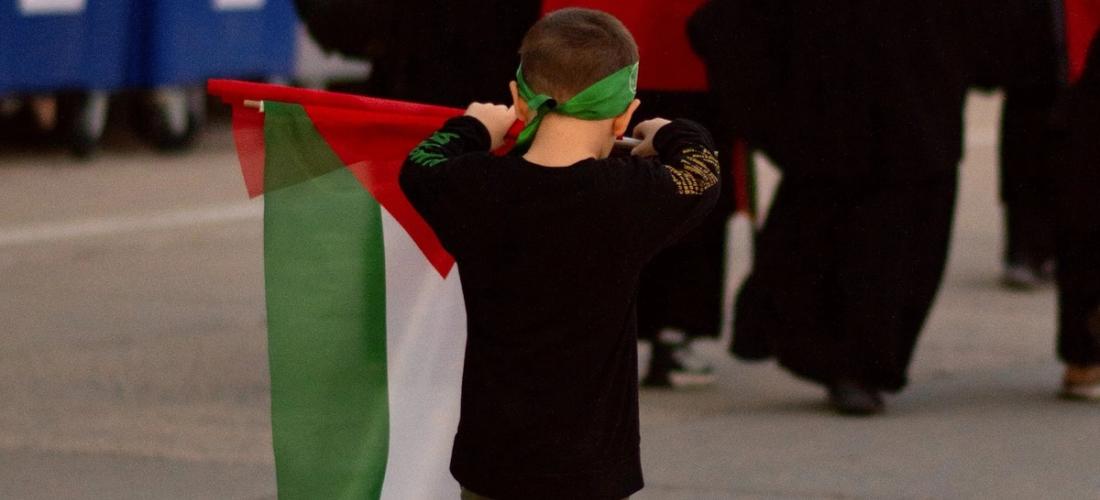
Image source: Pexels; photo by Lübna Abdullah
By Dr. Uzma Jafri
Practicing gratitude in the face of ongoing genocide in Palestine seems incongruent at this time. None of us are feeling like celebrating anything right now, and even trying to practice gratitude feels like an exercise in privilege when our fellow sisters and brothers are suffering so much, while we live in relative comfort and safety. It seems to be a betrayal to our brethren.
Most of us as parents cannot even articulate our pain right now, much less figure out how to help our kids come to terms with genocide in Palestine.
However, shukr (giving thanks) is not about ignoring or diminishing the severity of the situation, rather it’s about finding resilience, empathy and connection amidst the darkness.
Every day we hear people suffering unimaginable losses who start and end their laments with “Alhamdulillah” in expressing contentment for what Allah (S) has decreed. Addressing this with children requires careful consideration in order to balance harsh realities with the importance of cultivating empathy and gratitude.
Understand Context
Before introducing the concept of gratitude to children in the context of ongoing genocide in Gaza and Palestine, it is essential that they have a basic understanding of the historical and cultural aspects involved. Tailor the information to their age and maturity level, presenting it in a way that is comprehensible and respectful of their emotional capacity.
If you are Palestinian, you know your history as both witness and teacher to your children to help them understand it. If you’re not Palestinian and have a Palestinian friend or contact who can teach you about the history, DON’T ASK THEM. It is our responsibility to be informed without further adding to the grief of an affected people and its diaspora.
And, if our first line of information is TikTok or our friends, we aren’t making a true effort to be informed. There are several books that can help with our own education on Palestinian history, including for children:
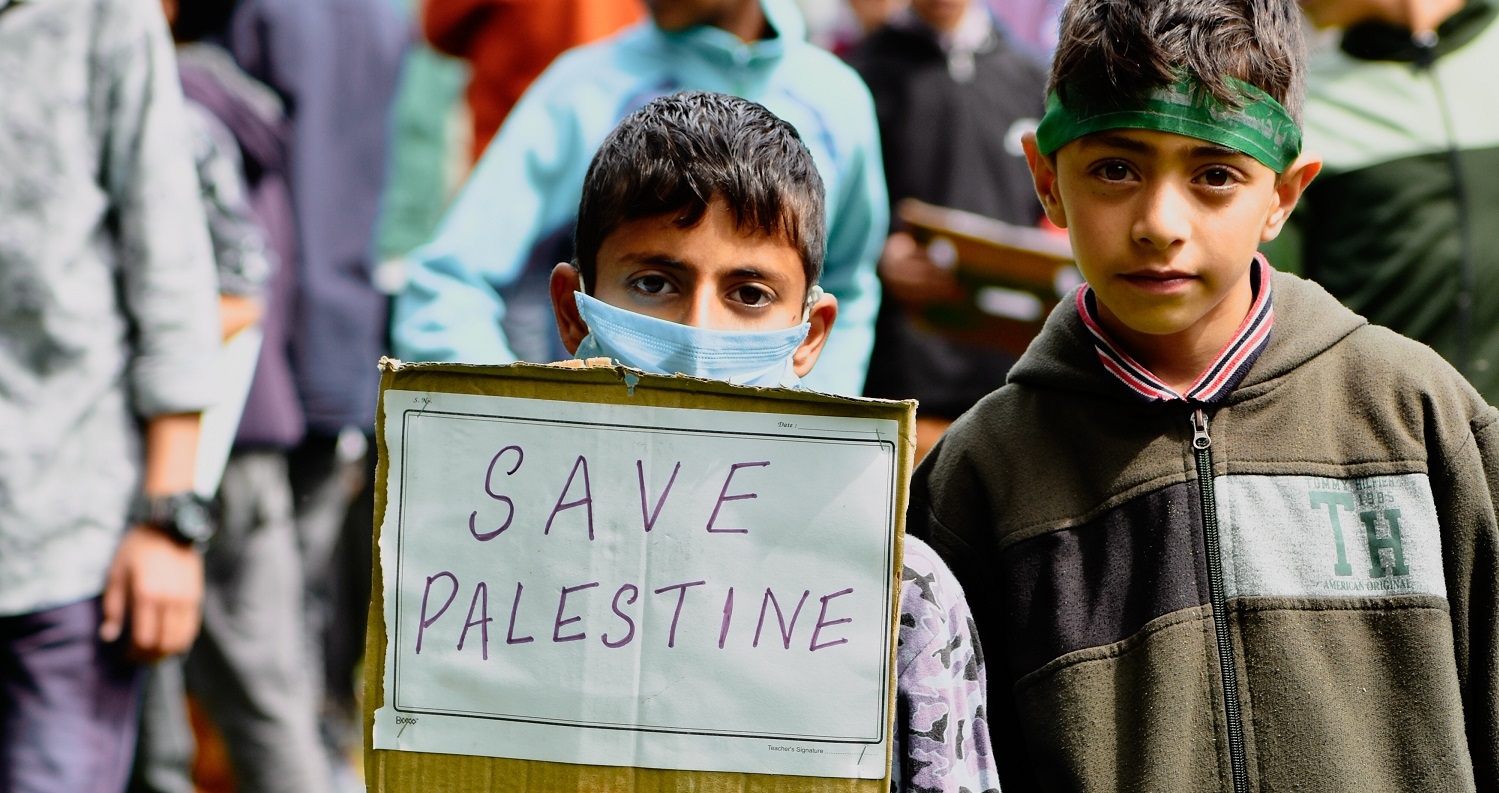
Image source: Wikimedia Commons
1. My Garden over Gaza by Sarah Musa
2. Homeland by Hannah Moushabeck
3. Rise Up, O Child of Palestine by Heba Subeh-Hyder
4. Sitti’s Olive Trees by Ndaa Hassan
And for adults:
1. The Ethnic Cleansing of Palestine by Ilan Pappe
2. The Hundred Years War on Palestine by Rashid Khalili
3. I Saw Ramallah by Mourid Barghouti
4. They Called Me Lioness by Ahed Tamimi and Dena Takruri
5. Mornings in Jenin by Susan Abulhalwa (Any of her fiction will dehydrate you through tears.)
6. In My Mother’s Footsteps by Mona Hajjar Halaby
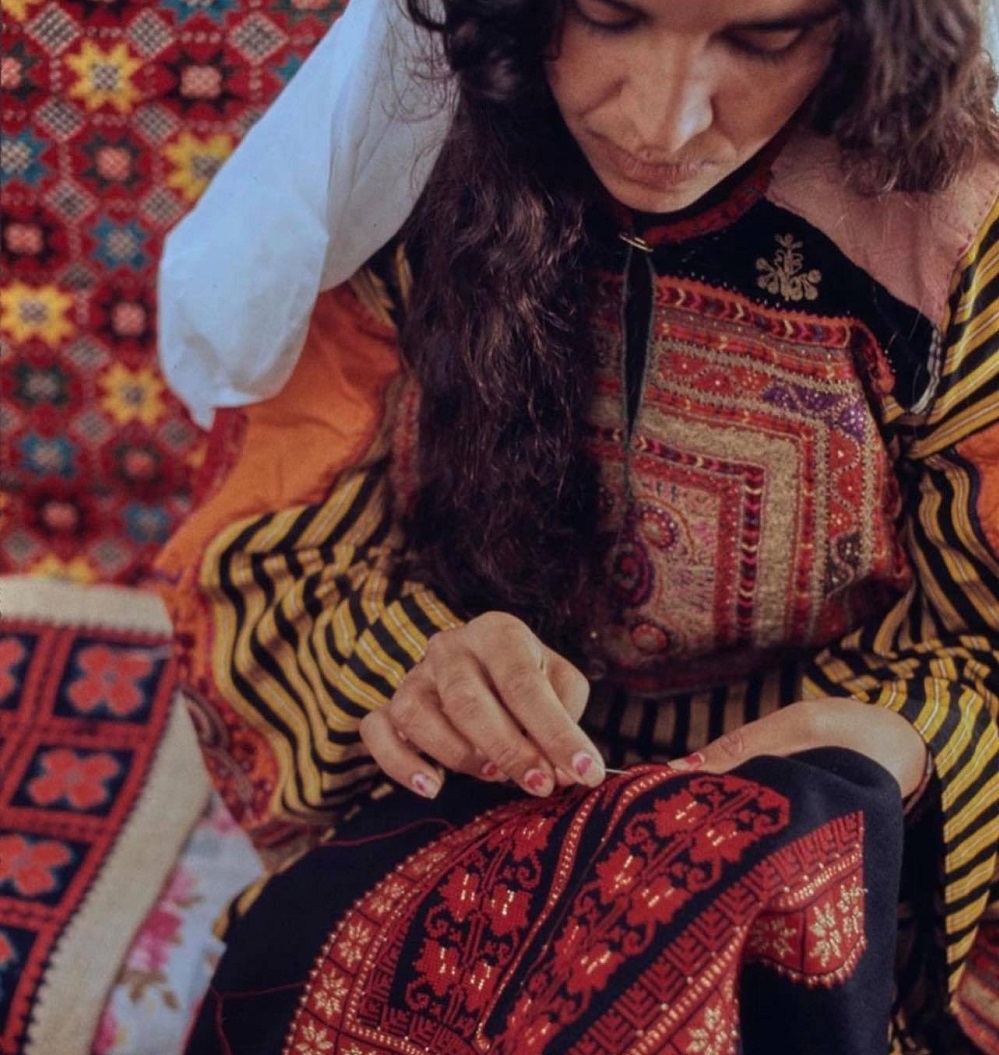
A Palestinian woman doing tatreez; image source: National Geographic Archives, Imagining the Holy Project, National Geographic December 1926.
If you listen to podcasts, try:
1. This is Palestine hosted by Diana Buttu and produced by the Institute for Middle East Understanding
2. Battle Lines produced by The Telegraph (episodes try to be balanced but fall short)
3. All Things Palestinian produced by Canadians for Justice and Peace in the Middle East
5. Disillusioned hosted by Yahav Erev (a pro-Palestinian Israeli)
6. The Empire Files hosted by Abbey Martin
7. The Miko Peled Podcast hosted by Miko Peled
We’ve asked some of the people listed above to come on as guests for our upcoming Mommying While Muslim December series: All About Palestine, and all episodes will be related to what has been and is happening there. We don’t know who to follow on TikTok because we (Zaiba and myself) aren’t on there that much. But if you know some good sources of information, let us know at salam@mommyingwhilemuslim.com, and we will reach out to those accounts for the series as well.
(Here’s a list of resources that can be helpful for kids of all ages to learn about Palestine, the resistance movement, and the current genocide that is happening in Gaza.)
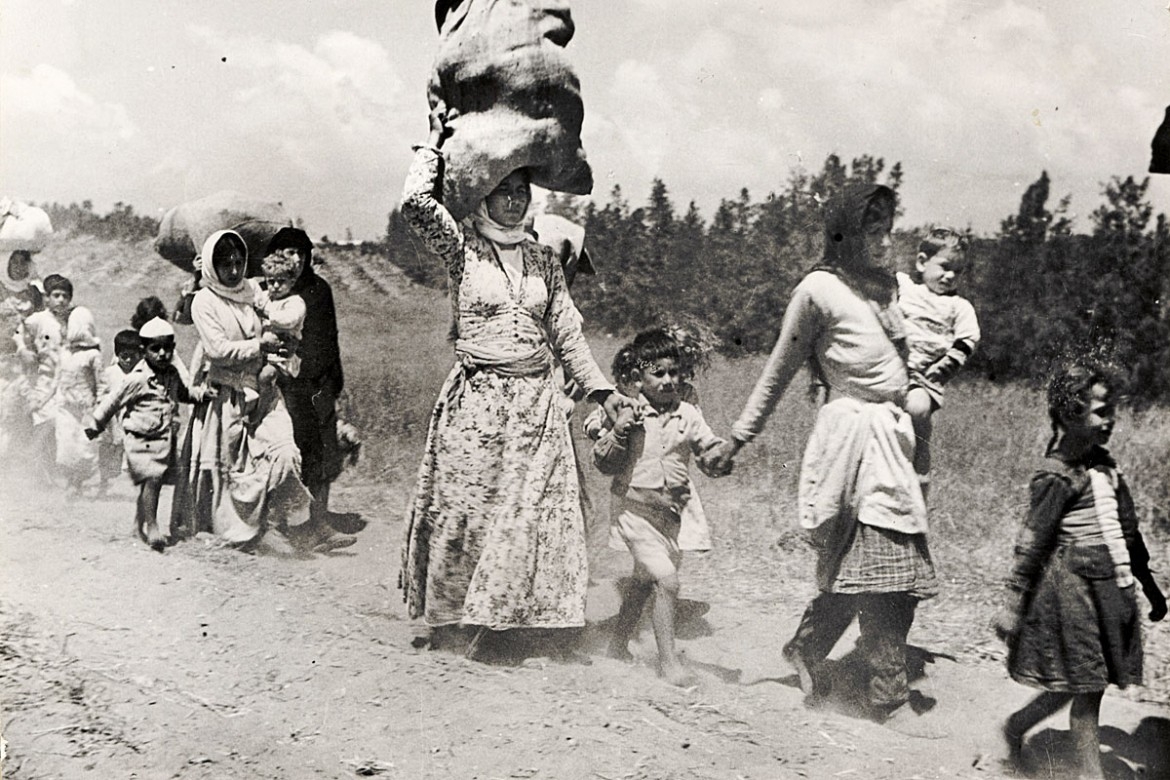
Palestine, Tulkarem district in 1948.; a group of around 1,000 people, including many mothers and children, forced to flee their homes during the first Israeli invasion. (File photo: ICRC)
Empathy as a Foundation
It’s important that we help children understand the pain and suffering experienced by others, acknowledging that it is okay to feel sadness, anger and confusion about such injustice. Share the following hadith with your kids:
The parable of the believers in their affection, mercy, and compassion for each other is that of a body. When any limb aches, the whole body reacts with sleeplessness and fever.
Sahih Muslim
Encourage open conversations, answering their questions with honesty while being mindful of their emotional well-being. If you have a child with high anxiety or sensory issues, they should not listen to or watch the images out of Palestine. In fact, most of the graphic ones should not be shown at all to young children, and only after discussion with older children.
Young children can color or write cards of support to the people of Gaza and you can set these aside for when materials can get there. Remember to send them when the time for it comes. You could also digitally share these cards of support on social media. Or they can certainly pass them out now to friends and family who are Palestinian. Activists in the street who are constantly being accused of a crime will also appreciate these innocent and sincere messages.
My 15, 14, and 12 year-olds have all looked up the genocide online and seen the videos and images, then they have come and discussed them with me. I said the same thing to them: Be careful what you see and how it makes you feel. Pain and anger must be used to fuel change, not more pain, anger or more hate. Direct those energies to protests, rallies, vigils and letters to Congress to demand a ceasefire. More below.
(Here’s how to contact your congressional representatives to call for a ceasefire.)
Highlight Resilience
In discussing ongoing genocide, emphasize stories of resilience and courage within affected communities. Share examples of individuals and groups working towards positive change, rebuilding their lives, and fostering hope amidst adversity. Stories of an unlikely live recovery in the rubble, or a family reunited will be good examples to maintain hope and possibility to young children. Stories of all afflicted people praising Allah (S) or declaring that they are not the ones being tested, but that we are, can inspire and incentivize older children to be grateful and act now.
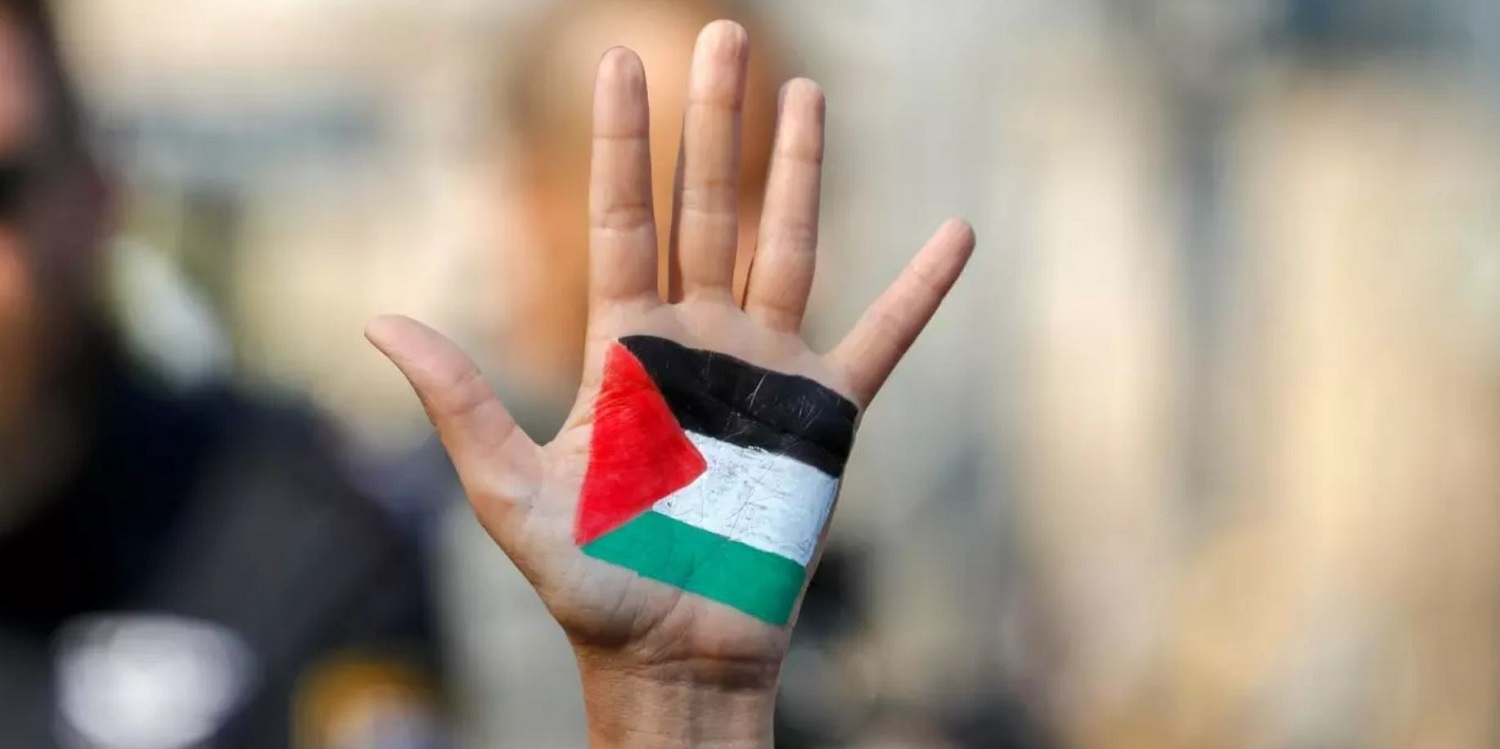
Image source: Pexels
Gratitude for Basic Human Rights
Help children understand that expressing gratitude for safety, access to education and a supportive community does not negate the suffering of others, but rather emphasizes the importance of working towards a world where everyone can enjoy these rights. For younger children, this can be done via discussion while reading the books listed above.
Right now, our younger kids don’t need any bubbles to be burst about the realities of corrupt governments or be asked why leaders aren’t protecting them. None of us has that answer. Let children believe they can be the leaders who, one day Insha’Allah, will ensure human rights for all.
It‘s okay to discuss the hypocrisy of leaders with older children and encourage them to have those discussions about human rights and cognitive dissonance without diving into religion in public spaces. It really depends on your kids’ maturity and ability to handle such discussions. If your kids join Amnesty International or Model UN, these are great opportunities for them to practice both public speaking and policy making and bring up, “What about Palestine?” without (Insha’Allah) getting in trouble.
There are poorly informed racists out there, trying to disband these school clubs to prevent our future generation from learning diplomacy and negotiation. That’s incentive enough to fight for and join them!
Going to vigils, marches, lectures and watching documentaries about Palestine will demonstrate the violations of human rights to older children better than we can, allowing them to exercise their brains and their civil rights.
Model Gratitude
We can’t say this enough. Model gratitude in the small wins: the light turned green before hitting the brakes, the weather warmed up, dinner was tasty, your kid got a “B” on the assignment. Say Alhamdulillah, carry your misbaha or tasbeeh, or do it on your fingers as the sunnah until it’s a habit, and don’t stop in front of the kids. Normalize it in public. I’m on the soccer pitch with my kids, and the other parents appreciate it, especially when we are down a goal. This demonstrates that gratitude is not about ignoring difficulties, but finding comfort in dhikr and shukr.
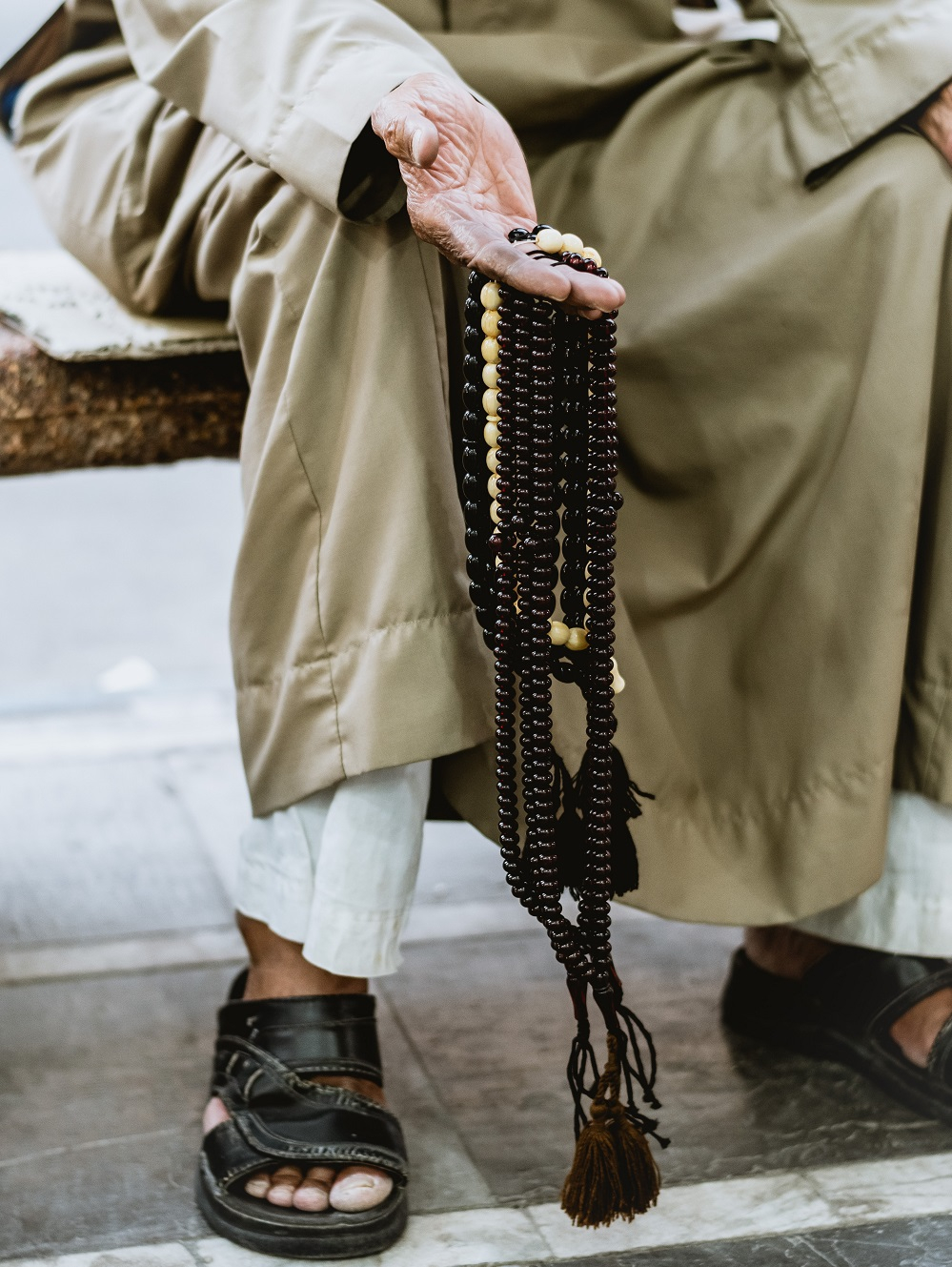
Image source: Pexels
Cultivate Global Perspective
Explore diverse cultures and histories via age-appropriate books, documentaries, discussions, or with experiences that highlight both the beauty and challenges faced by people around the world. Understanding different perspectives fosters empathy and a deeper appreciation for the interconnectedness of humanity.
This Turkey Day (and beyond), teach your kids that gratitude is every day, and especially to the people upon whose land we live. They’ll understand occupation and land grabbing at all ages. Talk about the un-whitewashed history of the upcoming holiday, the feelings of Indigenous people, and discuss reparations and justice. Acknowledge the harsh realities of genocide while fostering empathy, resilience and a sense of responsibility to all oppressed people, and especially to Palestine as our collective Muslim history and cause.
Children can learn to appreciate the importance of standing in solidarity with those who suffer while actively working towards a more just and compassionate world a lot easier than adults can. Trust them.
Dr. Uzma Jafri is originally from Texas, mom to four self-directed learners, a volunteer in multiple organizations from dawah resources to refugee social support services, and runs her own private practice. She is an aspiring writer and co host of Mommying While Muslim podcast, tipping the scales towards that ever elusive balance as the podcast tackles issues second generation Americans have the voice and stomach to tackle.
Subscribe to be the first to know about new product releases, styling ideas and more.
What products are you interested in?



